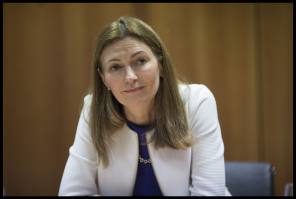
Investor sentiment towards emerging markets has focused more on the positives since the start of 2017, according to Aberdeen Asset Management’s chief economist Lucy O’Carroll.
The emerging markets-focused fund group, which has since confirmed a merger with Standard Life, had reported significant outflows in the last three months of 2016.
Chief executive Martin Gilbert had partly attributed the outflows to investors putting asset allocation decisions “on hold” following the presidential election on 9 November.
There were concerns emerging markets would be at the whim of the newly-elected president’s protectionist policies.
Ms O’Carroll told FTAdviser: “In the immediate aftermath of the US election result obviously there was a lot of investor concern. You could see that in markets, it was expressed very strongly against emerging markets.
“But since the presidential inauguration and a little bit before then sentiment has really changed and there’s been much more of a focus on the positives for emerging markets.”
She explained: “That change in focus has come about as a result of an improvement in global momentum in the second half of 2016 which has continued into the first few months of this year.
“We’ve seen a pick-up in global trade, in momentum surveys and also in commodity prices.”
She added during the taper tantrum of 2013 emerging markets had “advanced warning” and were able to address balance sheet concerns back then so they were in a “less vulnerable position”.
Ross Teverson, head of emerging markets strategy at Jupiter Asset Management, said at its annual investment dinner he does not think emerging markets are challenged by Mr Trump.
He added 2016 had been a good year for sterling investors in emerging markets and valuations were still attractive.
Rather than any single economic event, Ms O’Carroll cautioned the macroeconomic factor that presented the biggest challenge for investors this year was confidence.
She admitted while confidence was hard to measure it had a huge influence, “not only for investors but also for consumers, for firms making investment decisions”.
“But it seems to be increasingly hard to predict,” she suggested.
“I would never have thought that in a very uncertain world following the political shocks… that confidence could actually rise. But that’s what we’ve seen.”
Watch the video to see the full interview with Ms O’Carroll.
eleanor.duncan@ft.com



